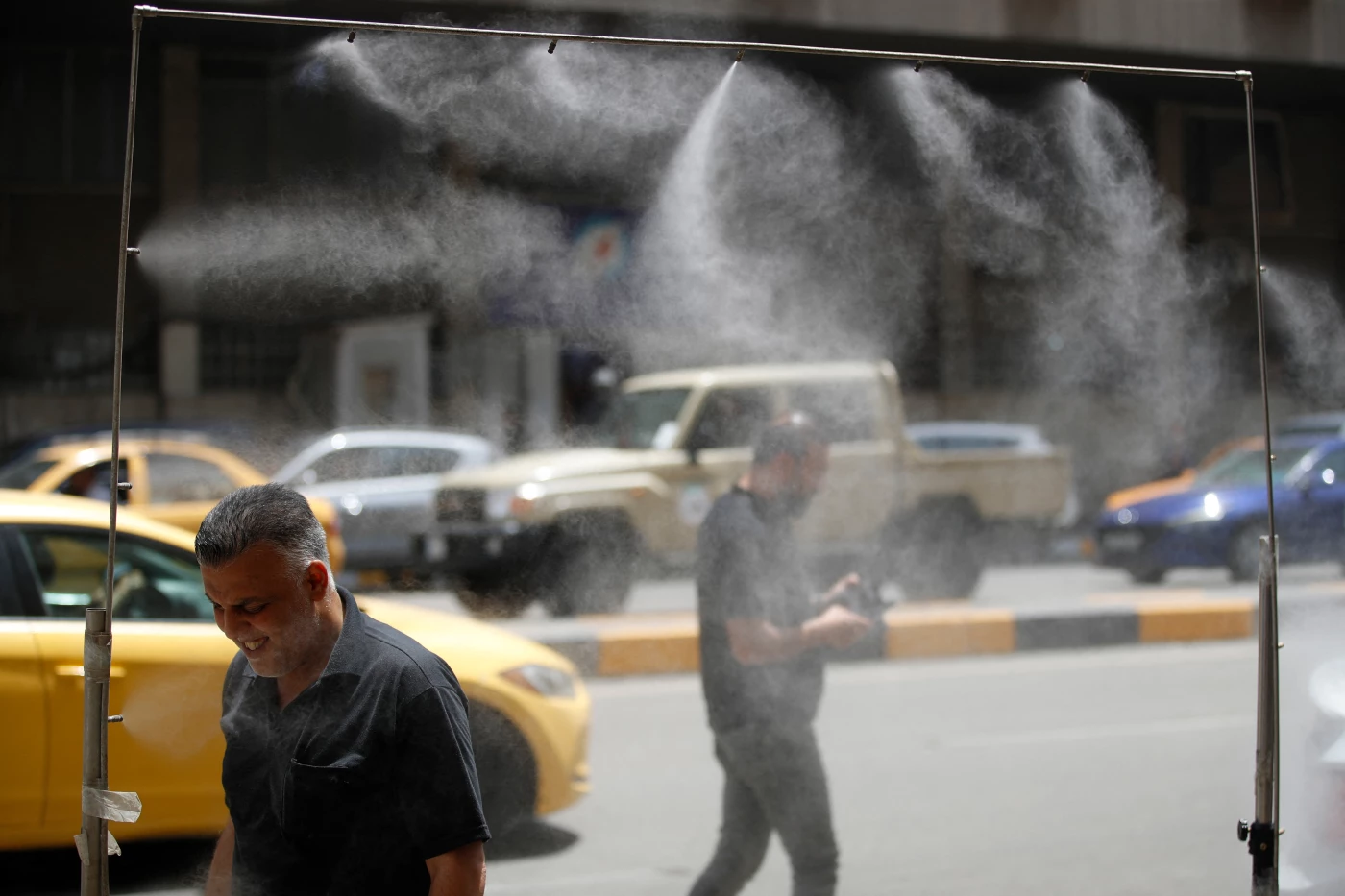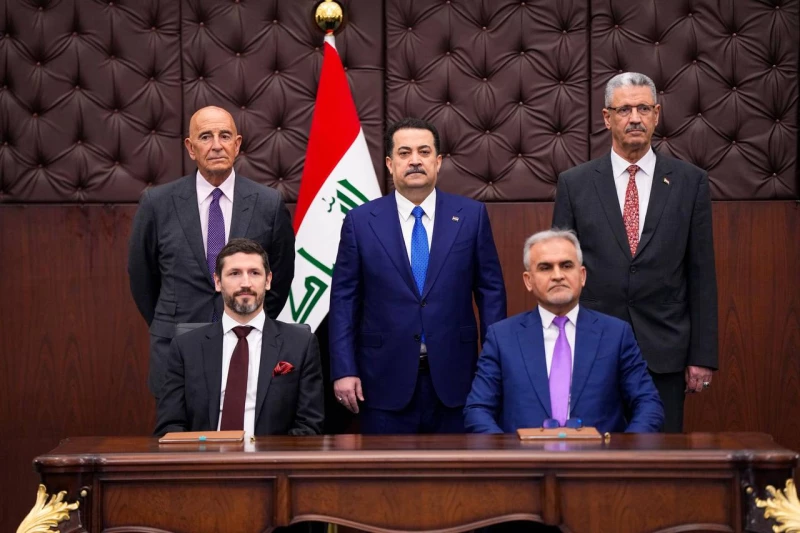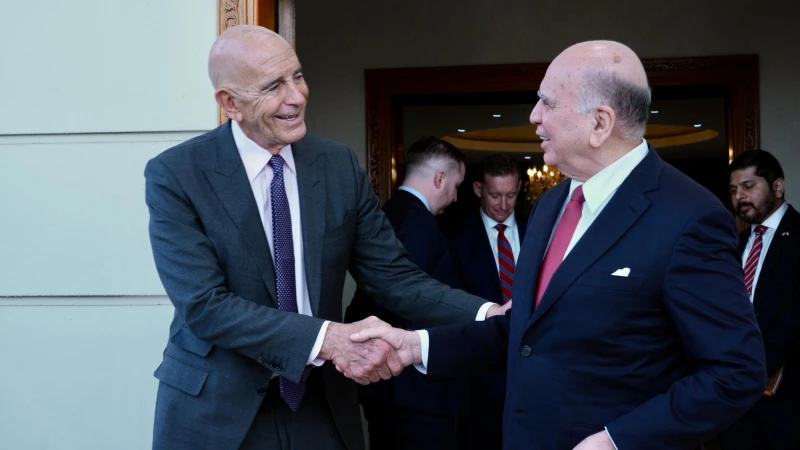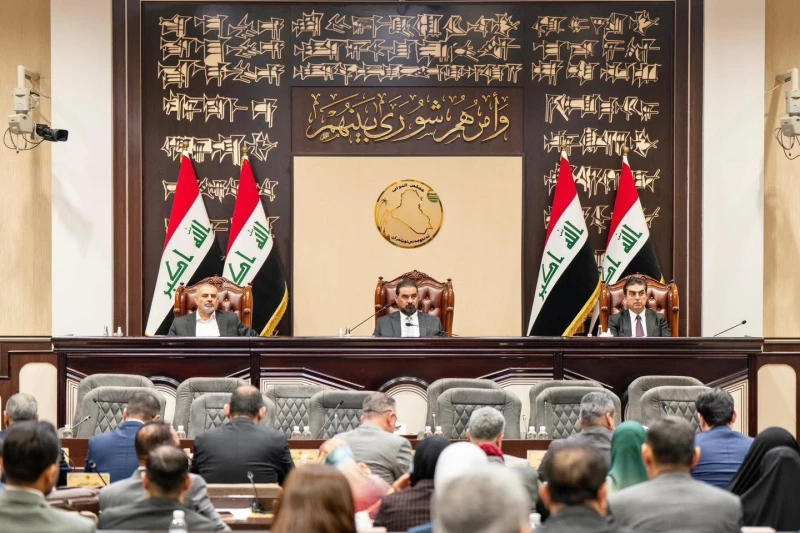Iraq on Saturday announced reducing working hours in response to high temperatures during the summer.
A directive from Iraqi Prime Minister Mohammed Shia’ al-Sudani said that “the official start time in all government institutions in the provinces, except for the capital, Baghdad, is at seven in the morning and the end of work is at one in the afternoon.”
“Governors have the authority to suspend official working hours in all government institutions, including central departments not affiliated with the governorate offices operating in their provinces on days when temperatures reach (50) degrees Celsius or more,” the directive added.
The decision from the Iraqi government came after at least seven Iraqi provinces reported temperatures above 50 degrees Celsius on the first day of summer.
A purple flag was raised at the West Qurna oil field in Basra on Saturday, due to temperatures reaching 52 degrees Celsius.
A purple flag was raised at the West Qurna oil field in #Basra on Saturday, due to temperatures reaching 52°C, rasing a purple flag is a practice by foreign oil companies signals extreme heat levels and serves as a precautionary measure.#TheNewRegion pic.twitter.com/fWVHwLGeWv
— The New Region (@thenewregion) June 22, 2024
Raising a purple flag is a practice by foreign oil companies that signals extreme heat levels and serves as a precautionary measure.
The decrease in working hours means that employees in Iraqi provinces will now leave work two hours early, one hour due to the heat and another due to pushing the start of work to 7 am instead of the previous 8 am start.
During Iraqi summers, temperatures often exceed 50 degrees Celsius, an issue elevated due to shortages of electricity.
For years, Baghdad has relied on importing gas from neighboring Iran to fuel the country’s electricity generation. During excessively hot summers, the country experiences blackouts because Iran sometimes reduces gas exports, claiming they need it for local use.
Iraq, despite possessing the world’s third-largest proven oil reserves, has struggled for years to develop its own natural gas industry.
The country is considered one of the top contributors to global gas flaring, a practice that not only wastes Iraq's potential to produce its own gas and fuel its electricity but also has a negative impact on the climate.



 Facebook
Facebook
 LinkedIn
LinkedIn
 Telegram
Telegram
 X
X


